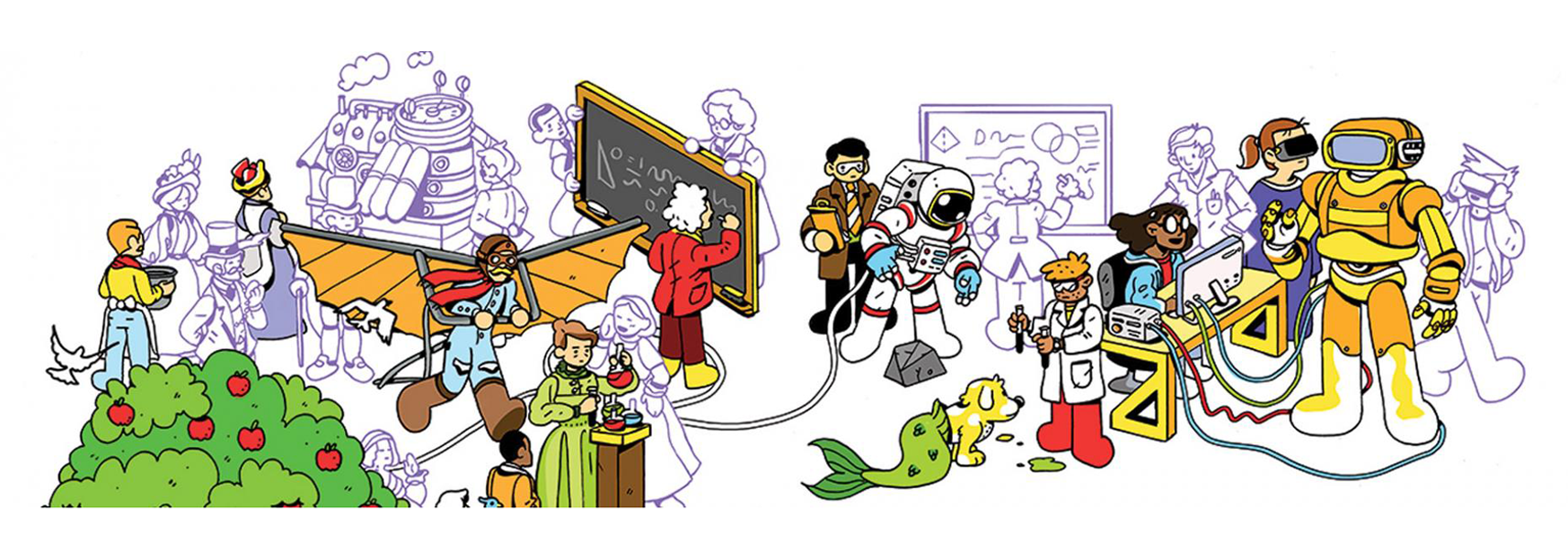
If Not Darwin, Who?
An alternative history of the great ideas of science.
“What would physics look like if Einstein had never existed, or biology without Darwin? In one view, nothing much would change—the discoveries they made and theories they devised would have materialized anyway sooner or later. That’s the odd thing about heroes and heroines of science: They are revered, they get institutions and quantities and even chemical elements named after them, and yet they are also regarded as somewhat expendable and replaceable in the onward march of scientific understanding.
But are they? One way to find out is to ask who, in their absence, would have made the same discovery. This kind of “counterfactual history” is derided by some historians, but there’s more to it than a new parlor game for scientists (although it can be that, too). It allows us to scrutinize and maybe challenge some of the myths that we build around scientific heroes. And it helps us think about the way science works: how ideas arise out of the context of their time and the contingencies and quirks of individual scientists.
“When you read through Darwin’s Species Notebooks and see the struggle he went through, and then you compare his first and second attempts to present it coherently (in 1842 and 1844) with the Origin, I think it is equally plausible that some very different theory of evolution might have won the day,” says Lennox. After all, alternatives to Darwinian thought were still debated in the late 19th and early 20th centuries, when, Lennox says, “a variety of non-Darwinian theories were at least as popular as Darwin’s.” Some prominent geneticists, such as the Dutchman Hugo de Vries, supposed that evolutionary changes happens in jumps (saltation) rather than by Darwin’s gradual change—and as far as the “macroevolution” of whole groups of species goes, that idea never went away: It’s comparable to the “punctuated equilibrium” model of modern-day biologists Stephen Jay Gould and Niles Eldredge.
But surely Darwinian natural selection is the “right” theory, so we’d have got there eventually? Well yes—but it’s still debated whether the disturbingly tautological “survival of the fittest” is the best way to think about it. Darwin’s view is now augmented and adapted, for example to include the effects of random genetic drift and to unify a view of evolutionary change with accounts of developmental biology (so called “evo-devo”). Might we have got to the current position, then, without an origin-of-species-type account at all? “I think that is entirely possible,” says Lennox.
That tells us something about this entire counterfactual enterprise. Science provides us with theories that are objectively useful in explaining and predicting what we see in the world. But that doesn’t deny the fact that specific theories generally have a particular style in terms of what they express or stress, or of what metaphors they use: Darwinism has no need of the “selfish gene,” for example. Similarly, in an entirely different field, quantum electrodynamics could have been constructed without using the celebrated language of Feynman diagrams devised by Richard Feynman. It seems entirely possible that the way we conceptualize the world bears the imprint of those who first proposed the concepts. Scientists may be less replaceable than we think.